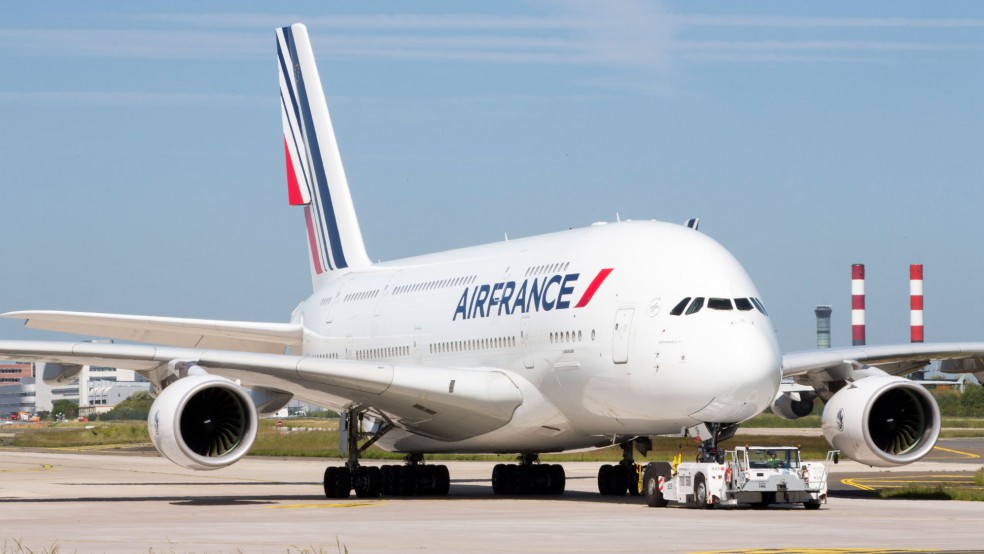Air France in turmoil
May 7, 2018 | Expert Insights

French Finance Minister Bruno Le Maire has warned the national airline Air France that it could “disappear” if it fails to remain competitive. Air France has reported a loss of over $320 million this quarter as union workers have been on strike for almost two weeks.
Background
Air France was founded in 1933 and is headquartered in Paris. It was formed by the merger of four airlines: Société Centrale pour l’Exploitation de LignesAériennes (founded 1919), Compagnie Internationale de Navigation (1920), Air Union (1923), and Air Orient (1929), who negotiated with the French government to form a national air transport system. The airline made its first trans-Atlantic flight in 1946.
Air France acquired the Dutch airline KLM in 2004 to form the Air France-KLM Group. In 2004, Air France was privatized after the Jean-Pierre Raffarin government sold its majority stake in the company. Today, commercial passenger services make up a major portion of the company’s business, and it also deals in cargo traffic and aviation maintenance and servicing. The state owns 14.3% of Air France.
Macron’s labour reforms
French President Emmanuel Macron has described his own politics as “progressive” and promised to overhaul rigid French labour laws to tackle unemployment in France. Macron, who has positioned himself as pro-business, has vowed to loosen up the French Labour Code, which is currently an unreadable 3,000 pages. On September 22nd, 2017, the French President signed five major decrees reforming a number of labour rules. The law increased flexibility in the private sector, allowing negotiable wages rather than industrywide agreements. The law also capped dismissal awards, and allowed workplace referendums. Macron described it as an “unprecedented transformation of our social and economic model.”
However, widespread protests erupted in France earlier this year, as public-sector workers protested the government’s economic reform plans. The demonstrations were sparked by Macron’s promise to cut over 100,000 government jobs and reduce the benefits received by employees of France’s state-owned rail company (SNCF). Rail unions announced their intention to stage three months of train strikes. The first day of the railway strikes, caused large-scale disruption to 4.5 million rail passengers across the country. On May 1st, May Day, thousands of people took to the streets to protest Macron’s reforms.
Read more on the rail strikes here.
Analysis
Early this month, Air France CEO Jean-Marc Janaillac announced his resignation. Janaillac had tried to convince union workers to accept a raise of 7% staggered over four years. Air France union members, who have been on strike for almost two weeks, rejected the deal. 55% of the 46,771 employees who voted, turned down the offer. Workers have demanded a raise of 5.1% this year. These strikes have reportedly cost the airline over $320 million, and Air France-KLM has reported a loss in their first quarter of the year.
“In line with the commitment I made at the launch of this consultation, I assume the consequences of this vote, and I will hand over in the coming days my resignation,” Janaillac said. “Beyond salary expectations, this vote is the translation of a malaise. It calls for a profound transformation. “Thirteen days of strikes and more than two months of conflict have weakened Air France, jeopardising its performance and its future. It’s a huge mess that can only delight our competitors, weaken our alliances and disorient our teams.”
France’s Minister of the Economy Bruno Le Maire has warned Air France that the French government will not “come to Air France’s rescue and soak up Air France’s losses.” He stated that the demands were “unjustified” and called on the union members to be “responsible.” “If Air France does not make efforts to become more competitive, allowing this flagship to be at the same level as Lufthansa and other airline companies, Air France will disappear,” Le Maire said.
The company has lowered its outlook for this year’s results, citing rising fuel prices and a strong Euro. In a statement it added that it "deplored the continuation of the strikes, even though no negotiation to end them will be possible in the coming period."
Assessment
Our assessment is that these strikes are part of a wider backdrop of economic reforms currently underway in the country. Both market and state actors are tackling the need to strike a balance between workers rights and remaining competitive. We believe that Air France-KLM is an old institution and one of the largest players in the European aviation industry and may not be likely to shut down operations.








Comments